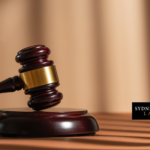Press Stands United Against Authoritarianism

There is not much that the bosses of News Corp, the ABC and channel 9 would agree upon, representing different segments of the ideological spectrum.
But as recently reported, they recently came together to jointly condemn laws which make reporting on crime and misconduct by the government and its agents a criminal offence, regardless of whether or not the information is in the public interest.
The recent AFP raids have galvanised journalists and a significant proportion of the public, who are recognising the threat posed by ‘secrecy laws’ to a free press and democracy in general.
The raids
Last month, the AFP searched the home of News Corp political journalist Annika Smethurst and the ABC’s Sydney headquarters, over two separate news stories which were based on the leaks of highly classified information.
The Annika Smethurst story had been about a report that the Home Affairs and Defence Departments were considering giving spy agencies greater surveillance powers.
The ABC story concerned the revelation of unlawful killings and misconduct by Australian special forced in Afghanistan, with this reporting based on hundreds of pages of secret Defence documents that were leaked to investigative journalists.
At the time, both news organisations similarly commented that the reporting was clearly in the public interests and that the raids representing a threat to all those who recognize that sometimes difficult truths need to be told.
Joint statement
The heads of News Corp, Nine and the ABC stood united in Canberra to speak out against the criminalisation of whistleblowers and journalists.
“We do not accept that safety equals secrecy,” News Corp executive chairman Michael Miller said, expressing the view that the actions against Ms Smethurst are about silencing those who report information that is unfavourable to the government.
“These raids put our democracy in danger,” he added. “They put the public’s right to know in danger and they put people who talk to journalists in danger.”
ABC’s new managing director David Anderson stated, “We want to be reassured that our parents and grandparents are being cared for appropriately, that our banks are not ripping us off, our elected officials are acting in our best interest, that we are properly informed about the activities of our military, law enforcement and security agencies.”
Nine chief executive Hugh Marks noted that whistleblowers are being targeted through current laws. “The balance in the national security debate is now too weighted towards secrecy and away from the public’s right to know”, he said
Legal context
Scott Morrison, meanwhile, has given his standard non-answer on the issue, claiming a commitment to democratic ideals while failing to acknowledge the nature or impact of the laws, let alone acknowledging the need for change or making a commitment thereto.
“My government is absolutely committed to freedom of the press,” Mr Morrison claimed.
The 2015 metadata retention scheme requires that all metadata (that is, data about a device or communication) be retained for two years. It may then be covertly accessed by a wide array of government agencies without a warrant.
Then, the National Security Legislation Amendment (Espionage and Foerign Interference) Bill 2018 created a series of laws that penalise Commonwealth officers that leak classified information, but also criminalises all the steps that go into reporting such information to the public, and impose serious penalties
ABC, Nine and News Corp have called for urgent law reform that would protect journalists and whistleblowers, including:
- Heightened protections for public sector whistleblowers;
- giving news organisations the right to be able to contest any kind of search warrant on journalists or news companies before the warrant is issued;
- a new system to limits which government or departmental documents can be marked secret;
- a review of Freedom of Information laws;
- a review of defamation laws; and
- and exemptions for journalists from the national security laws enacted over the past seven years which could see them jailed for doing their jobs.
Freedom of political communication
The ABC has initiated a legal challenge in the Federal Court of Australia against the AFP search warrants, with News Corp saying it will commence proceedings of its own.
An issue which the courts will ultimately need to consider is whether the AFP warrant contravene freedom of political communication which the courts have found is implied in the Australian Constitution.
This protection would invalidate legislation which limits communication on matters of political significance, unless the laws are found to be “reasonably appropriate and adapted to serve a legitimate end”.
The courts will soon decide whether ‘national security’ laws are invalid on the basis that they unjustifiably limit freedom of political communication.







